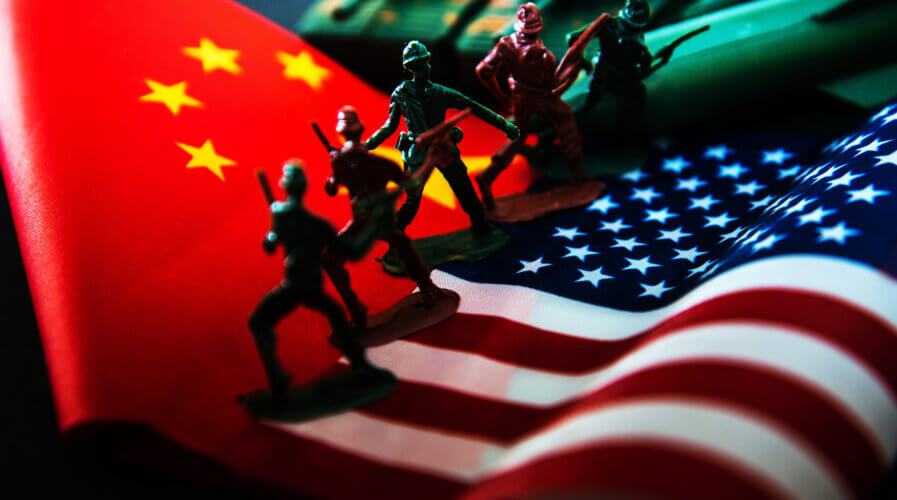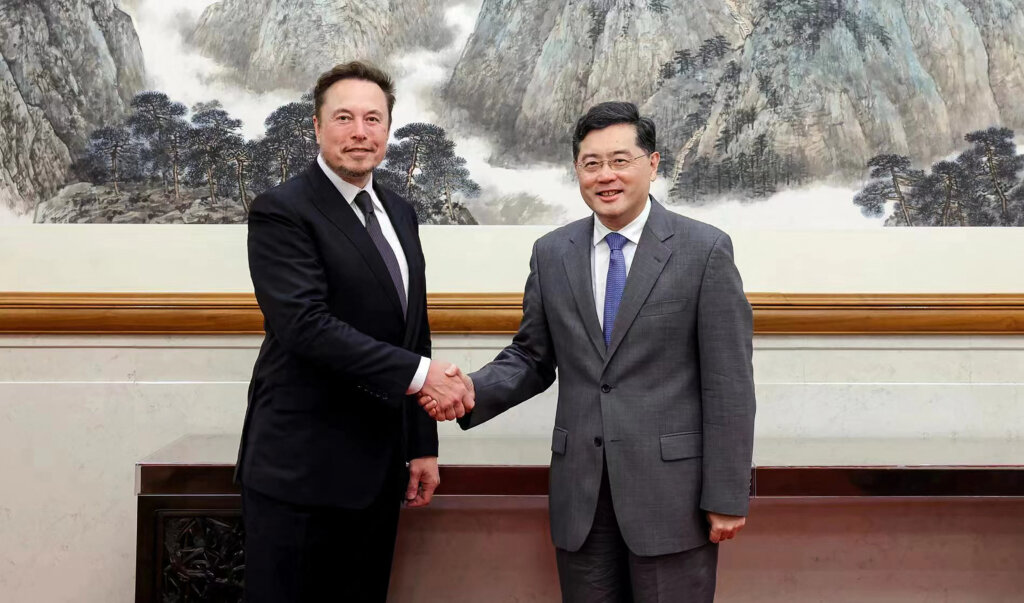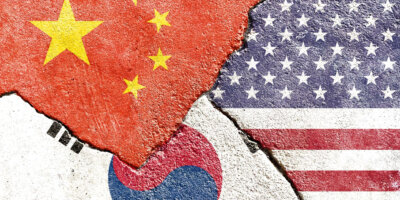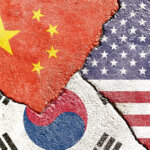
The US is preparing an executive order to restrict investments in China. Here’s what the ban could entailSource: Shutterstock
The US is preparing an executive order to restrict investments in China, but Elon Musk isn’t worried about it
- There are some new rules under consideration that would restrict the flow of US investments and know-how into chip, AI, and quantum computing companies in China.
- American lawmakers are still trying to restrict the supply of US-origin goods to Chinese telecommunications giant Huawei for good.
As the US President, Joe Biden has been constantly deliberating how aggressively to limit economic engagement with China. Like his predecessor, his main goal is to curtail Beijing’s technological and military rise, which usually starts with export restrictions. However, over the last few months, there have been talks about the government working on unprecedented rules to limit American investments in China.
When Reuters first reported on the rules in February, it was said that it involved a ban on investments tied to chip production. The rules track the sweeping new restrictions the US placed on exports of American artificial intelligence (AI) chips, chipmaking tools, and supercomputers, among other technologies, to China in October 2022.
However, the latest development indicates that the new rules under consideration would restrict the flow of US investments and know-how flow into Chinese companies working not only on advanced semiconductors but artificial intelligence and quantum computing too, a US Treasury official said.
Speaking before a Senate Banking Committee hearing, Paul Rosen, who oversees investment security at Treasury, said officials are working on curbing investment from the US that “comes with know-how and expertise to certain specific sectors and subsectors such as advanced semiconductors, artificial intelligence, and quantum computing,” citing China and its military in particular.
For context, the Biden Administration plans to crack down on the billions American firms have poured into sensitive Chinese sectors. Anti-China advocates in Washington blame US investors for transferring capital and valuable know-how to Chinese tech companies that could help advance Beijing’s military.
Interesting that the developments come at a particularly delicate moment for the administration, which has been trying to smooth tensions and maintain trade ties with Beijing. That tightrope walks highlights the challenges facing Biden’s escalation of efforts to rein in one of the world’s largest military and economic powers.
To top it off, anti-China fervor is at a peak among lawmakers and the public after the Chinese flew a spy balloon over the US. in February. But, of course, aggressive actions to sever the relationship could risk plunging both nations into a downward economic spiral.
Jay Shambaugh, Treasury’s undersecretary for international affairs, said during a discussion at the Brookings Institution last month, “It is important for the US to be clear [that] we do not seek to decouple from China or seek to limit China’s growth in any way.”
He meant that though the US will sometimes “take targeted national security actions” aimed at Chinese firms, like last year’s trade rules targeting Chinese microchip makers, those policies are “not things we’re doing to benefit the US economically vis-a-vis China.” The latest law will be laid out in an executive order that the White House is expected to unveil sooner than later.
Since the Trump administration, national security lawmakers and Cabinet officials have sought to craft new rules to oversee — and potentially block — US investments in Chinese tech sectors. The goal is to prevent American firms from funding or developing tech that the Chinese military can later use.
The US-China tiff on Huawei – not quite over?
At the same Senate Banking Committee hearing, Republican Senator Bill Hagerty asked about efforts to restrict the supply of US-origin goods to Chinese telecommunications company Huawei. Currently, any exports to Huawei require a license.
When asked about revoking these licenses, Commerce Department assistant secretary Thea Rozman Kendler said, “We do not have a draft rule at this time,” but added, “We are under deep analysis of this issue.” The talks on Huawei resurfaced because officials have been closely scrutinizing a wide range of exports to China.
Some lawmakers highlighted that last year they denied or took no action on a quarter of requests to stop sales that would advance Beijing’s militarization. Ahead of the Senate Banking Committee hearing, Kendler noted in written testimony that In 2022, 5,064 export and re-export license applications were reviewed, and about 26% were denied or returned without action.
AI regulations on the agenda as well
Both the European Union and the US also stated that they would soon release a voluntary code of conduct on artificial intelligence, hoping to develop common standards among democracies as China makes rapid gains. Both political and technology industry leaders have been warning of the growing risks as AI takes off, with potentially wide-ranging effects on privacy and other civil liberties.
After talks with EU officials in Sweden, US Secretary of State Antony Blinken told reporters that Western partners felt the “fierce urgency” to act and would ask “like-minded countries” to join the voluntary code of conduct.
“There’s almost always a gap when new technologies emerge,” Blinken said, with “the time it takes for governments and institutions to figure out how to legislate or regulate”.
European Commission Vice President Margrethe Vestager added that a draft would be put forward “within weeks”. “We think it’s really important that citizens can see that democracies can deliver,” she said.
She voiced hope “to do that in the broadest possible circle — with our friends in Canada, in the UK, in Japan, in India, bringing as many onboard as possible”.
The EU has been moving forward on the world’s first regulations on AI, which would ban biometric surveillance and ensure human control of the technologies, though the rules would not enter into force before 2025 at the earliest. China has also discussed regulations but Western powers fear that Beijing, with its growing prowess in the field and willingness to export to fellow authoritarian countries, could effectively set global standards.
While concerns have risen about China in the European Union, the bloc as a whole has yet to take as assertive a stance as the US has, with French President Emmanuel Macron recently leading a major business delegation to the world’s second-largest economy.

This handout picture taken and released by the Ministry of Foreign Affairs of the People’s Republic of China on May 30, 2023 shows Tesla CEO Elon Musk (L) shaking hands with China’s Foreign Minister Qin Gang during a meeting in Beijing. Elon Musk met Foreign Minister Qin Gang in Beijing on May 30, the ministry said, as the Tesla CEO embarks on his first trip to China in more than three years. (Photo by Handout / Ministry of Foreign Affairs of the People’s Republic of China / AFP)
What about Elon Musk?
Despite the growing tension, Elon Musk still made a big visit to China this week. Arriving in Beijing, Musk held meetings with top ministers and praising China’s “vitality and potential”. He then stopped off in Shanghai — home to a vast Tesla manufacturing base — before his private jet left the city.
Photos of a reported 16-course dinner menu laid out for Musk’s arrival — featuring seafood, New Zealand lamb and traditional Beijing-style noodles — quickly went viral on social media. Many users were keen to show their appreciation for a man known affectionately as “Brother Horse” after the first character in Musk’s Chinese name.
“For Musk, there are no countries on this planet, only markets… to hawk your wares,” wrote one user. “This is exactly the kind of borderless capitalism he predicted.”
Some took the opportunity to poke fun at the United States at a time of strained ties between the world’s two largest economies. “Our officials and media are going hard on this visit,” quipped one Weibo user. “He’s apparently the only American welcome in China.”
With additional reporting from Agence France-Presse
READ MORE
- 3 Steps to Successfully Automate Copilot for Microsoft 365 Implementation
- Trustworthy AI – the Promise of Enterprise-Friendly Generative Machine Learning with Dell and NVIDIA
- Strategies for Democratizing GenAI
- The criticality of endpoint management in cybersecurity and operations
- Ethical AI: The renewed importance of safeguarding data and customer privacy in Generative AI applications


